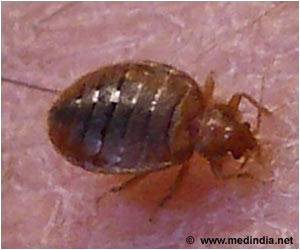Will there be a vaccine for HIV? The clinical trial of an HIV vaccine being developed was stopped because it was ineffective at preventing HIV infection.
- There have been more than 250 clinical trials to develop a vaccine for preventing HIV infection
- A clinical trial began in 2019 to induce immune responses against a variety of global HIV strains
- The vaccine developed in the study was safe but ineffective in protecting against HIV acquisition
AIDS and The Sustainable Development Goals
Go to source).
HIV Vaccine Being Developed by Johnson & Johnson Fails Clinical Trial
The HPX3002/HVTN 706, or “Mosaico,” Phase 3 clinical trial began in 2019 and involved 3,900 volunteers ages 18 to 60 years in Europe, North America, and South America. Based on the DSMB’s recommendation, the study will be discontinued. Participants are notified of the findings, and further analyses of the study data are planned.Janssen Vaccines & Prevention B.V., part of the Janssen Pharmaceutical Companies of Johnson & Johnson, sponsored the Mosaico study with funding support from the National Institute of Allergy and Infectious Diseases (NIAID), part of the National Institutes of Health.
The trial was conducted by the NIAID-funded HIV Vaccine Clinical Trials Network, based at the Fred Hutchinson Cancer Research Center in Seattle. The U.S. Army Medical Research and Development Command provided additional study support.
The experimental vaccine regimen was developed by Janssen. It was based on “mosaic” immunogens—vaccine components featuring elements of multiple HIV subtypes—to induce immune responses against a wide variety of global HIV strains.
The investigational vaccine regimen consisted of four injections over a year of Ad26.Mos4.HIV. This vaccine candidate uses a common-cold virus (adenovirus serotype 26, or Ad26) to deliver the mosaic immunogens.
In its scheduled data review, the DSMB determined there were no safety issues with the experimental vaccine regimen. However, the number of HIV infections was equivalent between the vaccine and placebo arms of the study.
Why Don't We Have an HIV Vaccine?
The Mosaico findings track developments in the Phase 2b “Imbokodo” (HPX2008/HVTN 705) clinical trial, which was testing a similar HIV vaccine regimen in young women in sub-Saharan Africa. A DSMB determined in 2021, the experimental vaccine regimen in that study was also safe but ineffective in protecting against HIV acquisition (2✔ ✔Trusted SourceExperimental HIV vaccine regimen safe but ineffective, study finds
Go to source).
HIV is a constantly changing and very challenging adversary. However, we have come a long way and made many discoveries since life expectancy was very short following an HIV diagnosis. This latest failure hangs a big question mark over this field of research.
In the future, the exploration of the mRNA platform as a possible basis for an HIV vaccine is still in the safety testing phase. Whether the answer for failure is a different vaccine delivery system, suggesting the problem is probably the immune targets of various vaccines.
Researchers acknowledged the path ahead will be difficult, but they remain optimistic that at some point, HIV vaccine efforts will be a success.
References:
- AIDS and The Sustainable Development Goals - (https://www.unaids.org/en/AIDS_SDGs)
- Experimental HIV vaccine regimen safe but ineffective, study finds - (https://www.nih.gov/news-events/news-releases/experimental-hiv-vaccine-regimen-safe-ineffective-study-finds)
Source-Medindia
















